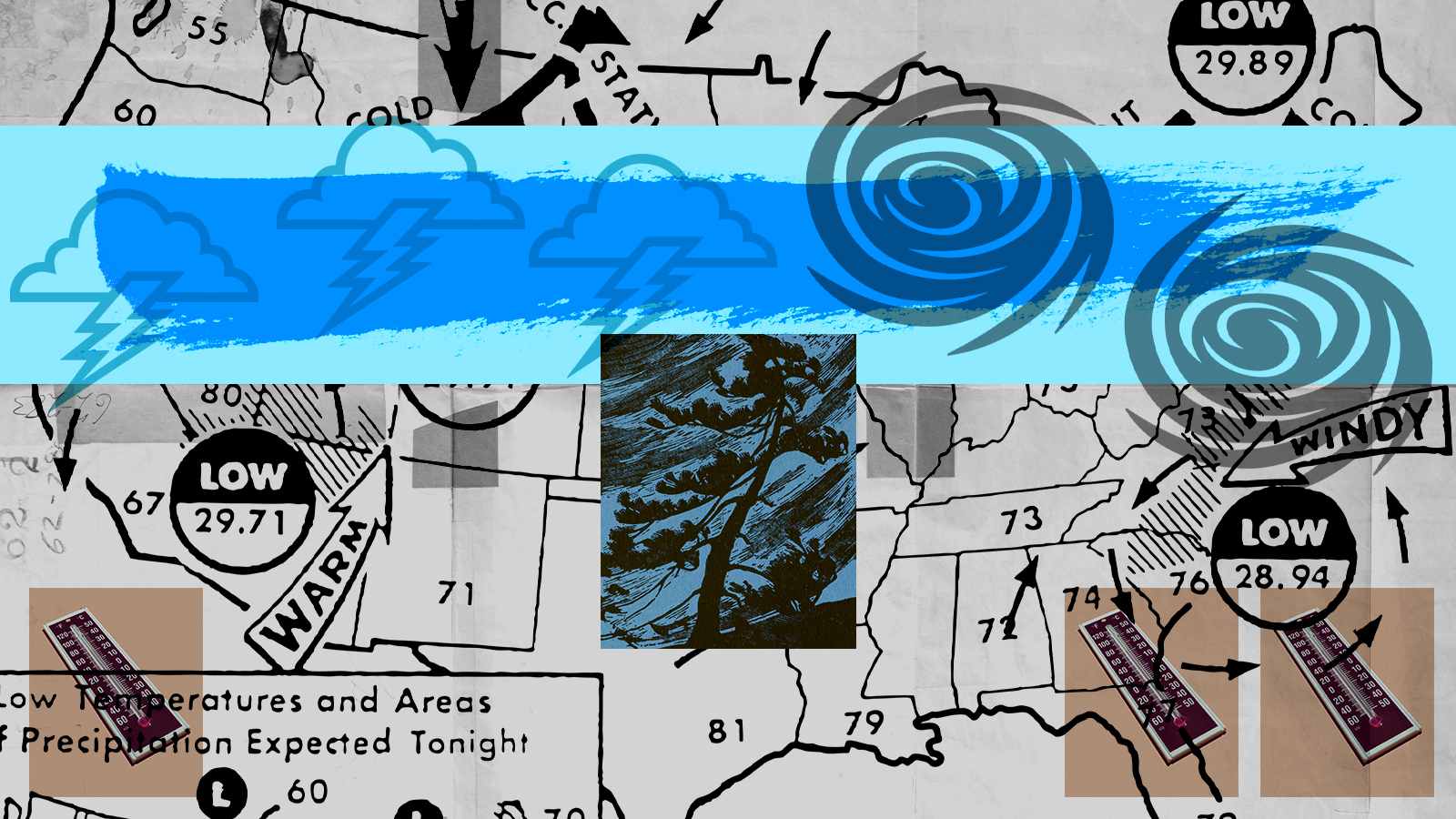The problem with crying wolf about the weather


A free daily email with the biggest news stories of the day – and the best features from TheWeek.com
You are now subscribed
Your newsletter sign-up was successful
Last weekend, weather-weary Washingtonians braced for "a beast of a bomb cyclone" which AccuWeather forecasters said would "rival, in some aspects, the intensity of strong hurricanes from the Atlantic this season." University of Washington meteorologist Cliff Mass announced that while there were still "uncertainties with its track," this would be "the most powerful storm in Northwest history."
But by Saturday night, The Seattle Times had an update: There was "not a very big storm" pending. Ultimately, 100,000 customers lost power and two people were killed in their car by a falling tree — but otherwise, to the at-home observer, this ostensibly historic weather event was a typical winter storm. So why would Washingtonians take the next megastorm forecast seriously?
As climate change makes extreme weather events increasingly likely, it's crucial we get weather forecasts correct — or at least as correct as is humanly possible. That means giving warning before catastrophes like the deadly Pacific Northwest "heat dome" this summer, but it also means not crying wolf. As a 2009 study found, being too trigger-happy with storm warnings actually leads to a loss of life: "Tornadoes that occur in an area with a higher false-alarm ratio kill and injure more people, everything else being constant." People numb to warnings if they often don't come true.
The Week
Escape your echo chamber. Get the facts behind the news, plus analysis from multiple perspectives.

Sign up for The Week's Free Newsletters
From our morning news briefing to a weekly Good News Newsletter, get the best of The Week delivered directly to your inbox.
From our morning news briefing to a weekly Good News Newsletter, get the best of The Week delivered directly to your inbox.
The bad news is false alarms will naturally rise alongside extreme weather disasters, which are already five times more common than they were 50 years ago. With that acceleration, meteorologists may (understandably) be inclined to err on the side of caution. "The costs are so great ... in terms of human life that there are more false alarms than misses," University of Washington professor Susan Joslyn, co-author of a 2015 paper, "The Cry Wolf Effect and Weather-Related Decision Making," told The Advocate. "False alarms are part of it. There are always going to be false alarms."
So what's to be done? We need to invest in technology to make more accurate predictions and decrease both false alarms and blindsides. The Biden administration has proposed increasing funding to the National Oceanic and Atmospheric Administration to $6.9 billion, nearly 50 percent more than what was proposed by the Trump administration. That investment would at least partially go toward improved early-warning systems. Meanwhile, the U.S. National Weather Service has invested in two massive new supercomputers (each the size of 10 refrigerators and 150,000 times more powerful than a laptop), which should help dramatically increase models and predictions, MIT Technology Review reports.
Of course, educating the public about how the changing climate intensifies the weather helps, too. We're less likely to roll our eyes at mistaken cries of "wolf" when we know the wolf out there is real.
A free daily email with the biggest news stories of the day – and the best features from TheWeek.com
Jeva Lange was the executive editor at TheWeek.com. She formerly served as The Week's deputy editor and culture critic. She is also a contributor to Screen Slate, and her writing has appeared in The New York Daily News, The Awl, Vice, and Gothamist, among other publications. Jeva lives in New York City. Follow her on Twitter.
-
 How to Get to Heaven from Belfast: a ‘highly entertaining ride’
How to Get to Heaven from Belfast: a ‘highly entertaining ride’The Week Recommends Mystery-comedy from the creator of Derry Girls should be ‘your new binge-watch’
-
 The 8 best TV shows of the 1960s
The 8 best TV shows of the 1960sThe standout shows of this decade take viewers from outer space to the Wild West
-
 Microdramas are booming
Microdramas are boomingUnder the radar Scroll to watch a whole movie
-
 How climate change is affecting Christmas
How climate change is affecting ChristmasThe Explainer There may be a slim chance of future white Christmases
-
 Why scientists are attempting nuclear fusion
Why scientists are attempting nuclear fusionThe Explainer Harnessing the reaction that powers the stars could offer a potentially unlimited source of carbon-free energy, and the race is hotting up
-
 Canyons under the Antarctic have deep impacts
Canyons under the Antarctic have deep impactsUnder the radar Submarine canyons could be affecting the climate more than previously thought
-
 NASA is moving away from tracking climate change
NASA is moving away from tracking climate changeThe Explainer Climate missions could be going dark
-
 What would happen to Earth if humans went extinct?
What would happen to Earth if humans went extinct?The Explainer Human extinction could potentially give rise to new species and climates
-
 Bacteria can turn plastic waste into a painkiller
Bacteria can turn plastic waste into a painkillerUnder the radar The process could be a solution to plastic pollution
-
 Cautious optimism surrounds plans for the world's first nuclear fusion power plant
Cautious optimism surrounds plans for the world's first nuclear fusion power plantTalking Point Some in the industry feel that the plant will face many challenges
-
 Florida has a sinking condo problem
Florida has a sinking condo problemUNDER THE RADAR Scientists are (cautiously) ringing the alarms over dozens of the Sunshine State's high-end high-rises
